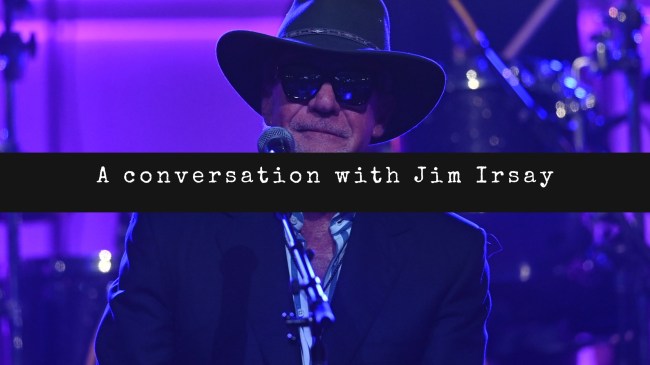
It’s a Tuesday afternoon in early December, right after sunset. I’m on a Zoom with Jim Irsay, the wildly outspoken and eclectic owner of the Indianapolis Colts. The night before, the Colts had lost to the Cowboys on Monday Night Football in a 54-19 thrashing.
We didn’t talk about football once. It wasn’t on the agenda anyway.
We’re contemplating ennui – the chronic listlessness that comes from the humdrum of modern life.
—
“I think as human beings, particularly certain human beings, we get bored with this fabric of life,” Irsay says.
“You’re taught to get a job, try to become a lawyer or a doctor. If you can’t, be an accountant or something. Have a family and save enough money, put them through college, and if you’re lucky enough, move to Florida when you’re 65.”
“I mean I’m not saying it’s a bad gig, but a lot of people end up thinking, is this all there is?”
Irsay, 63, ponders between puffs of a cigarette. His tone is warm, with hallmark gruffness.
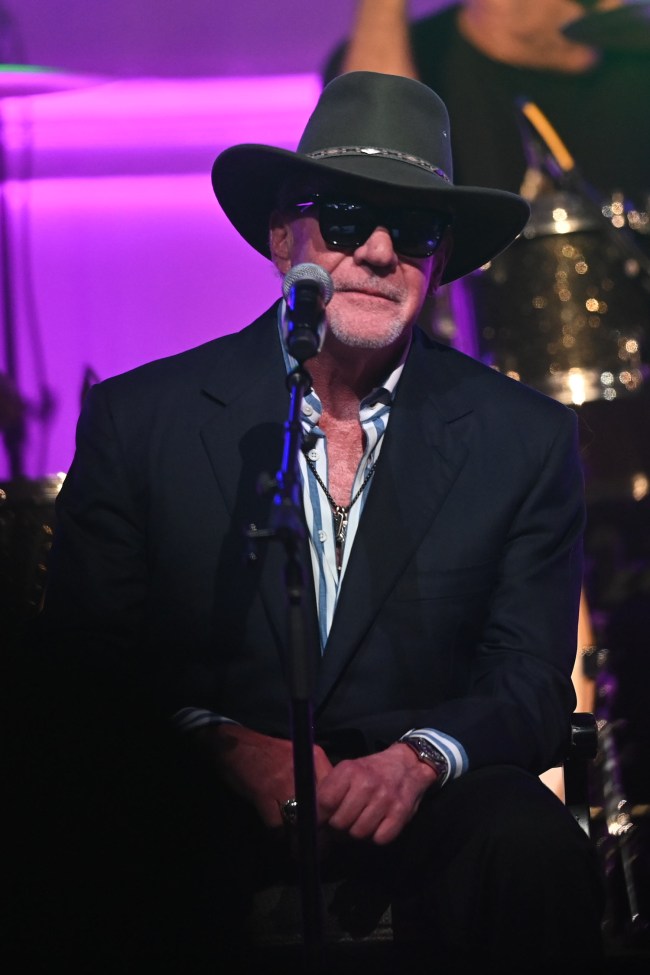
“I think those of us who are insistent about getting to the top of Mount Everest, it’s not because we want to see what’s on top and say we got to the top of Mount Everest. We wanna see where we can go from there.”
“We wanna get on Everest and say ‘so now where can we go from here?’ It’s neverending.”
Irsay shifts focus, honing in on his point.
“That’s the reason there are a lot of self-destructive qualities in writers. Writers who would have a tendency to drink and drug too much. It’s natural. Kerouac talks about it all the time; it’s this insatiable appetite that it’s never enough. It’s never enough. It’s never enough because the only thing that is enough is passion. It’s not getting something. It’s not “Oh, I won the Nobel Prize.” No, none of that matters.
“It’s how I feel. It’s my passion. That’s all that matters to me. Nothing else matters.”
—
Most armchair NFL fans know that this sort of duality is Jim Irsay’s thing.
He’s not just an iconoclast in the sports world, though, just like any of us are only our chosen occupation. Sure, he’s the billionaire owner of an NFL franchise, inherited by his alcoholic father in 1997. He “righted the ship” on a down-in-the-dumps Colts organization via a management strategy that worked, perhaps resulting in the team’s first Super Bowl in 2007.
He’s also a spirited collector of cultural history.
The Jim Irsay Collection includes some of the most treasured artifacts in sports, music, and literary history. Over the span of two decades, Irsay has acquired a vast collection of cultural memorabilia.
It’s a history nerd’s fever dream, with items like:
- Abraham Lincoln’s walking cane
- An original Wanted poster for John Wilkes Booth.
- The Fender Strat Bob Dylan played at Newport Folk Festival in 1965, which coined the term “going electric”
- The drums Ringo Starr played during The Beatles’ appearance on The Ed Sullivan Show
- Muhammad Ali’s WBC championship belt that he won in the 1974 “Rumble in the Jungle” fight over George Foreman, of which he paid $6 million in July 2022.
- Kurt Cobain’s 1969 Fender Mustang guitar, used in the “Smells Like Teen Spirit” music video, for which he paid $4.5 million in May 2022.
Irsay pays for his namesake collection to tour the country, with free admission, so all can experience it. Each stop also includes a show featuring some of Irsay’s musician friends, including icons like Buddy Guy, Kenny Wayne Shepard, and Ann Wilson.
Stops have included Washington D.C., Austin, Los Angeles, New York, Chicago, and Indianapolis just before the 2022 NFL season. On Saturday, December 10, it rolls into San Francisco’s Bill Graham Civic Auditorium.
—
I reached out to Irsay to talk about the Collection, along with some of the item’s unique ties to the Bay Area’s cultural heritage.
Specifically, our conversation loosely focuses on the backstory of three artifacts:
- Jack Kerouac’s original On the Road manuscript, which was frantically typed out on a single scroll over the course of three weeks in 1951. The holy grail of Beatnik American literature, it was one of the first items in Irsay’s collection, acquired in 2002 for $2.43 million. Irsay has taken the scroll on the road many times over the last 20 years, showing it in museums, libraries, and exhibitions around the world.
- Jerry Garcia’s iconic Tiger guitar which he played from 1979 – 1989, which Irsay bought at auction for $957,000 in 2002.
- Hunter S. Thompson’s Great Red Shark Chevy convertible. Irsay and Hunter S. Thompson were friends, with Hunter once writing Irsay to draft Ryan Leaf instead of Peyton Manning in 1998. Irsay wrote a farewell to Hunter on ESPN.com after his passing in 2005.
Our 40-minute conversation was a fun and freewheeling one. Jim was gracious with his time.
We didn’t just talk about stuff, either. We talked about people. About art. About life. About the joy that comes from curating things with meaning and letting the world experience them.
Note: This interview has been edited for flow and readability.
—
On Jack Kerouac and The Beat generation writers
Irsay: As you know, I was a broadcast journalism major.
Everything changed for me with my writing when I read Dylan Thomas. Before, I didn’t think without Led Zeppelin, John Bonham, and a Les Paul guitar and Marshall Amps that you could have that kind of power. But then, when I started reading Dylan Thomas, I was just floored. Floored, floored.
My daughter’s a writer. She’s studied a lot of old poets. Some of the ones that she likes are pretty traditional that I’ve read. I read them and I’m like, ‘well, that’s good but it’s not that intense.’ That’s the reason I think the Kérouacs and Dylan Thomases are incredible.
What burned out of The Beats and graces the writing, in general, is the unvarnished truth.
It’s like Jack Nicholson says in A Few Good Men – ‘You want the truth! You can’t handle the truth.’ A lot of people can’t handle the truth and that’s unfortunate because the first problem they have with the truth, they take it personally.
The truth’s just the truth. Let’s talk about Buddha. Let’s talk about Jesus. Let’s talk about God. It really doesn’t matter. God doesn’t care what you think or how you worship. God is God – has no interest in Man. It’s much bigger than that. Just like God ultimately is love and truth, but without either one, it falls apart.
So for me – when we were faking it after World War II in the 50s and everyone was so cool about pretending how everything was so cool. This is how the world goes, this is about the sexual world, and this is about how you behave. All that shit and McCarthyism and all that stuff.
And then The Beats came out and just blew it all up, which led to punk and led to the 60s and stuff like that. Interestingly enough, Kerouac hated the 60s.

He became a recluse.
I know if you look at the Mike Douglas interview – one of the last interviews he ever did in 1968 before he died – when they ask him about the 60s, he was kind of bitter towards the 60s and didn’t understand them.
Kerouac, to me, was the best writer. Obviously [Neal] Cassidy too. You could call him a writer, but he was more of a muse. Kerouac was the best writer AND one of the greatest writers ever.
I think obviously Hemingway and Dylan Thomas and Hunter S. Thompson. There’s only a handful. But in terms of Americans, obviously Hemingway and Hunter and [Bob] Dylan, obviously, in my mind.
On the origins of The Jim Irsay Collection
Irsay: On the Road was so incredible. The manuscript was so incredible. That’s really kind of what started me on the journey.
Someone was asking me the other day in an interview, ‘We heard you collected baseball cards as a kid,’ but then there’s a big gap between when you were eight years old and 34, 35 years old.
They asked why. I said, ‘Well, I didn’t have any money, [laughter]’
I didn’t have any money to buy anything. I was the General Manager of the team but my dad was pretty cheap paying me a hundred thousand dollars a year, which wasn’t bad. But with three kids and a mortgage and a Visa bill and the rest…
Until I took over things and kind of righted a sinking ship, unfortunately, which had started to decay the business model and everything around it because of my dad’s alcoholism. But then [I] resurrected that whole part of my family’s generation, so…
On The Road just came about quick and hard. I was talking to Hunter S. and talking to Cameron Crowe. We were talking about where that fell historically and all those things. It was undeniable, the incredible nature [of the scroll].
And also, in collecting, one of the most important things is small details are huge details. When you see Jerry Garcia on the 24th fret of Tiger put there by Doug Irwin, that’s huge. That’s humongous. That’s not a little thing.’
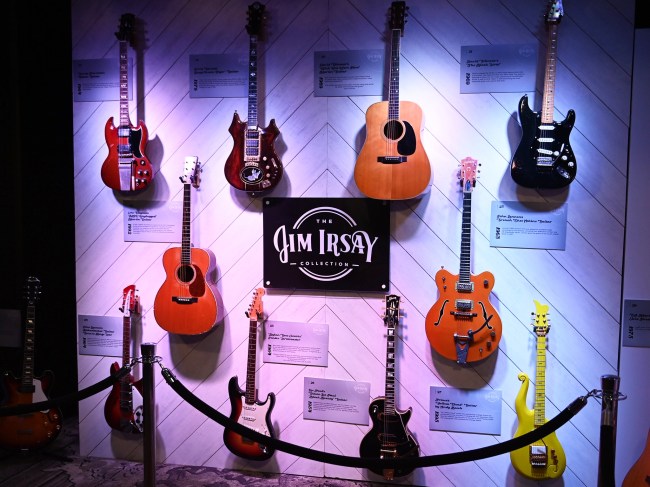
And the scroll being 118 feet long – the physical nature makes it so unique. If it were a normal manuscript, it would still be so special but the fact that it’s that length, and we’ve displayed it at 120 feet. I have a case that can do it at certain museums which aren’t many, but in Paris we had it fully displayed at 120 feet.
To me, it’s really cool that you’re in the center of that. I think about Frisco and Greenwich Village – just were two really hot spots of a lot of radicals and rebels and great writers and that sort of thing.
—
You and I, we could look at the guitar collection and say, well, ‘I own it and you don’t.’
First of all, no one owns anything. They borrow everything. I’ve never seen a hearse pull a U-Haul. Second of all, how does that make you feel just ’cause you own it? You feel differently about it. Why? Why? It’s like how can ownership change your feelings? They can’t.
I don’t think of owning anything. I just think of creating things that make people feel and, hopefully, feel inspired, feel well, feel spiritual, feel God, and the spirits that truly are there and pure love. That’s the only thing that interests me.
I don’t have any interest in anything else. I think that’s the reason for the shows and the memorabilia and all we do.
It’s a dedicated mission to all the brothers and sisters of the world to make people feel better, to make people feel safer, to make people feel inspired to do things like that because it’s not like for the nobility of it per se. It’s just because you’re driven to do that.
—
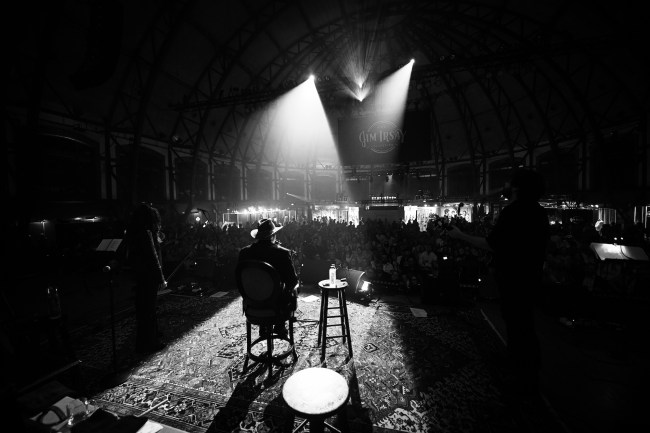
On being a steward of such important historical artifacts:
Note: Irsay has famously lent out many of his guitars and instruments to be played over the years. I asked him why this was important.
Irsay: I can see the day coming when you all have an institution that like with Stradivarius violins people have to have sponsors, but in this case, you take in letters that make a case. IE: ‘I grew up in South Central and I went to Harvard and I went to Juilliard Music School. Would you consider sending me that 1959 Les Paul? I have this band…’
It’s not just all the famous instruments. Those are great, like Jerry Garcia’s Tiger, Bob Dylan’s guitar that he plugged in Newport.
I mean those are all so cool, but the collection is filled with just some of the greatest musical instruments guitar-wise in the world. They just are so rare and they’re such great instruments. I know with Kenny Wayne Shepherd, just to see him play some of them. I mean they’re meant to be played. They’re alive when they’re played.
It’s a little bit like that movie. If you never saw it, you should watch The Red Violin.
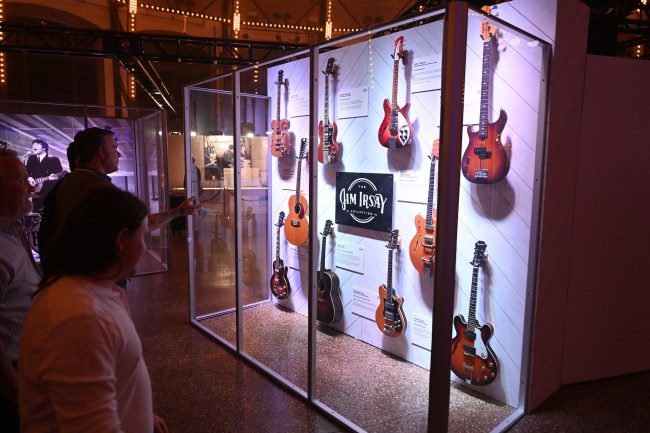
I love finding out about the provenance [of the instruments in the collection]. I can’t get the provenance of my 1850 Martin guitar because it’s untraceable past a certain point. It just gets lost and no one can figure it out because no one kept the record.
On music and the Grateful Dead:
Irsay: It’s hugely essential for my life and the paths I pursue. I’ve always loved gypsies. The girl I wanna fall in love with isn’t the prom queen – it’s that gypsy with the scarf coming through town on that wagon pulled by a horse.
It’s those gypsies that are out, living throughout the world in different places and experiencing life that way.
That’s really why The Dead is so [important]. Because it’s bringing everyone together – a community together – behind this gypsy band.
This band clearly could have been on the street corner somewhere in New Orleans or San Francisco or New York City. I mean just never quite know what’s gonna happen during the performance. Obviously heavily jazz-influenced but way beyond that. I mean folk influence, jazz influence.
I couldn’t be a bigger fan personally. As a guitarist, Jerry Garcia was one my top like three guitarists. Him and JJ Cale. Then probably a tie between David Gilmour and Mark Knopfler, but particularly JJ Cale and Jerry Garcia.
They had this very humble understated way of finding their notes in between the music. They were very slippery. They were very subtle. They were very humble players. At the same time, Jerry could take over a stadium like all the greats like Townsend or Gilmore or whatever, he was that special.
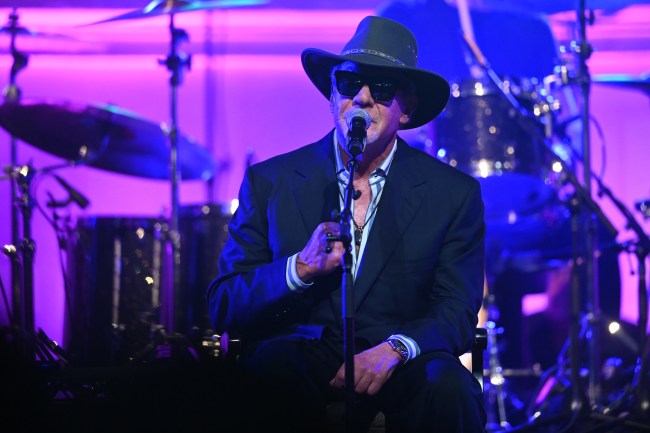
So, I was just such a big, big Garcia fan as a guitar player. But beyond that the concept of the band and everything else of the Grateful Dead and just that scene and all the fans that followed around for decade after decade and how it transcended at least three generations of different people following it really is iconic.
Anything that can jump generations and collectibles or in history and people that do things. If you can jump generations – multiple generations like the Dead has – and will continue to jump, that’s special.
Take someone like John Belushi. I mean, you mean you might know John Belushi. He only had the number one hit TV show, the number-one album, and the number-one movie in the country. He was one of the biggest stars 40 years ago, now no one knows who the fuck he is. But that’s just fame and it’s not about fame.
The Grateful Dead is way bigger than the Grateful Dead itself.
BroBible: Did you go to any shows?
I did yeah. I wasn’t a Deadhead and my acid trips seemed to be tied more to Pink Floyd than the Grateful Dead, but I went to shows. Bob Weir is a friend. I know Bob some, I met him when he was with RatDog and I just had bought Tiger. I was with him in Indianapolis at The Vogue, this nightclub that RatDog was playing. We got together and he was telling me about this Grateful Dead Museum they wanna do and that sort of thing.
I’ve seen the Dead, I’ve seen RatDog. I wasn’t like a Deadhead. When I was 18, 19 or 20, I wasn’t hopping in the car and chasing them down somewhere as much. I had a lot of responsibility early in life with the football team and stuff like that…
You could live kind of two lives to a degree: The rock and roll life and the football life.
But in the end, football kind of trumped it just because I knew that’s what I was gonna do as a profession. So I kind of tended to that. But it was always such a thrill.
I have to tell you… Steven Stills is gonna play this show. Steven is finally feeling better.
I’ve known Steven for 40 years. But I never knew when I was like 17 or 18. I mean it’s beyond any dream or vision. I never thought I would meet someone like Steven Stills or have Jerry Garcia’s Tiger. To me, that’s just been my journey.
I’m 63. If you told me when I was 17 at some show, ‘you’re gonna own these things and you’re gonna know these people and they’re gonna be your friends and they’re gonna be playing,’ I’d say “You’re out of your fucking mind man! What planet are you from? Are you crazy? That’s insane.’
On Hunter S. Thompson
How did you and Hunter become friendly?
Irsay: Well, I was helping Cameron Crowe do Jerry Maguire, which is a football movie – if you ever saw it – with Tom Cruise.
And so Cameron and I became really good friends. I helped him a lot in the movie and kind of went through the whole travel journey of when he finally got Cruise to do the film. It was a big deal for him. He was kind of crossing into the next dimension from already a successful writing and directing career in Hollywood.
Afterward, he was like, ‘Well, Jim, I was trying to think of a way to thank you. The best thing I can do is… I know my friend Hunter, he’s a big football fan. I’ve talked to him about you and he wants to talk to you.’ In fact, when I told him we’d be talking, he took out Fear and Loathing On The Campaign Trail and scrawled this shit on like five pages, and he laughed.
He goes, that’s the best work he’s done in years.
I don’t know if you read that yet, but it’s fucking hilarious. He always called me James. So he just goes on and on in this book. It’s so fucking hilarious. ‘You gold bag digging, they won’t watch you in Cleveland and they won’t watch you in Los Angeles You’re gonna get… Small busts are gonna start happening and bigger busts after that and you’ll die in the filth of your greed.’
I mean, it just goes on and on.
—
Hunter S. Thompson’s letter to Jim Irsay
Originally shared in 2011 via Colts.com
“To Jim Irsay
The Colts suck because you diss the whole concept of “Team” – or even “Gang”.
The Colts act like a gaggle of third-world transients in a holding pen with just enough whiskey and weirdness and talent to be competitive – but soon they will start getting busted – small things at first, but soon bigger & faster & uglier. And your shame will be as the shame of many; yr days will be spastic episodes full of great crooked cops & wrongful dishonor…that is what I see in the future – which is yesterday for you poor bastards because you’re too dumb to even Fake a “team” concept or even to say the word “we” in public. That’s why you can’t have any fun with the Colts & you won’t have any fun with the Browns or the Whores or The Globtrotters.
Be careful, James – yr greed crazed outbursts are beginning to rub off on people. “
Dr. Hunter S. Thompson.
May 5th 1997
—
Irsay: Him and I just hit it off so much. To be honest with you, I completely loved the writer part of Hunter ’cause he was such a genius. I haven’t really ever met someone like him with the brilliance of mind that Hunter had. His writing was so powerful that I couldn’t read it too much or it would affect my writing too much. I mean, it will affect it no matter what – I couldn’t help it..
He could be checking into a hotel in Cleveland, Ohio, and the next thing you know there are dinosaurs in the lobby, and people are digging for gold. And behind the counter, he’s just trying to get his keys.
With Hunter, he blended things… Like Hemingway, he blended fiction and truth. But Hunter was heavier.
His writing wasn’t based theoretically on truth. Even when he talked about himself and – it was more biographically talking about himself – maybe 80% was true and 20% wasn’t. But with Hunter, like you never knew the meter. It’s like, well, 30% is true and 70% isn’t or 90% isn’t true, but 10% is.
You just don’t know what was true and not true because of how he lived. He and Hemingway lived lives where they tried to put themselves in the thick of things and they did. I mean, Hemingway claimed to have killed over 100 men in three different wars, which is a completely ridiculous thing to say. I mean, it’s just not true. I mean, but he said it and he meant it and he wasn’t kidding. It was just a bald-faced lie…
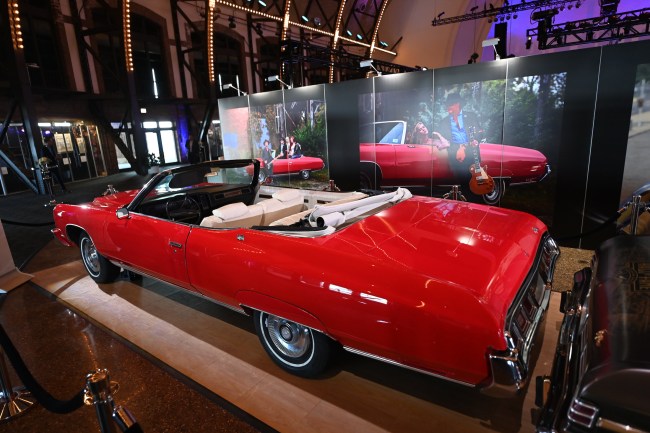
I think it’s hilarious. But with Hunter, you never knew. That’s the reason I loved Andy Kaufman so much, is because you just didn’t know when he was talking about what was real or not.
On great writers, artists, and substance abuse
It’s remarkable to think Hemingway could produce The Old Man In The Sea so late, so alcoholic in his life, when he was so fractured and so barely there. It’s remarkable because of what gets taken away. I’ve known a lot of writers in music and books and poetry. Drugs and alcohol can be helpful a lot early but it breaks your source from where you get a line.
I was talking to John Hiatt, the great singer-songwriter and we were talking about this song. I said, ‘Man, where the fuck did you get those lyrics?’ I kind of knew, but I asked him anyway. He said, ‘Well, you know Jim, I don’t know. I was just sitting in a farmhouse and there were ghosts around supposedly but they just came to me through the universe.’
And that’s the thing with writing. Whenever I talk to writers like Peter Berg, the Hollywood director and writer, he’s like, ‘Yeah, the first thing I’m always writing in the morning, in the morning, in the morning when I get up.’
That’s when the fields are rich with writing.
In conclusion
Irsay: I really could never dream to be so fortunate to have lived the life and to be a caretaker of these things. So I just try to do the best I can to make sure everyone gets a chance to see them and take good care of them and make sure something’s set up right for the long-term future for the next 100 years plus.
It means a lot to me that this history gets passed down the right way.